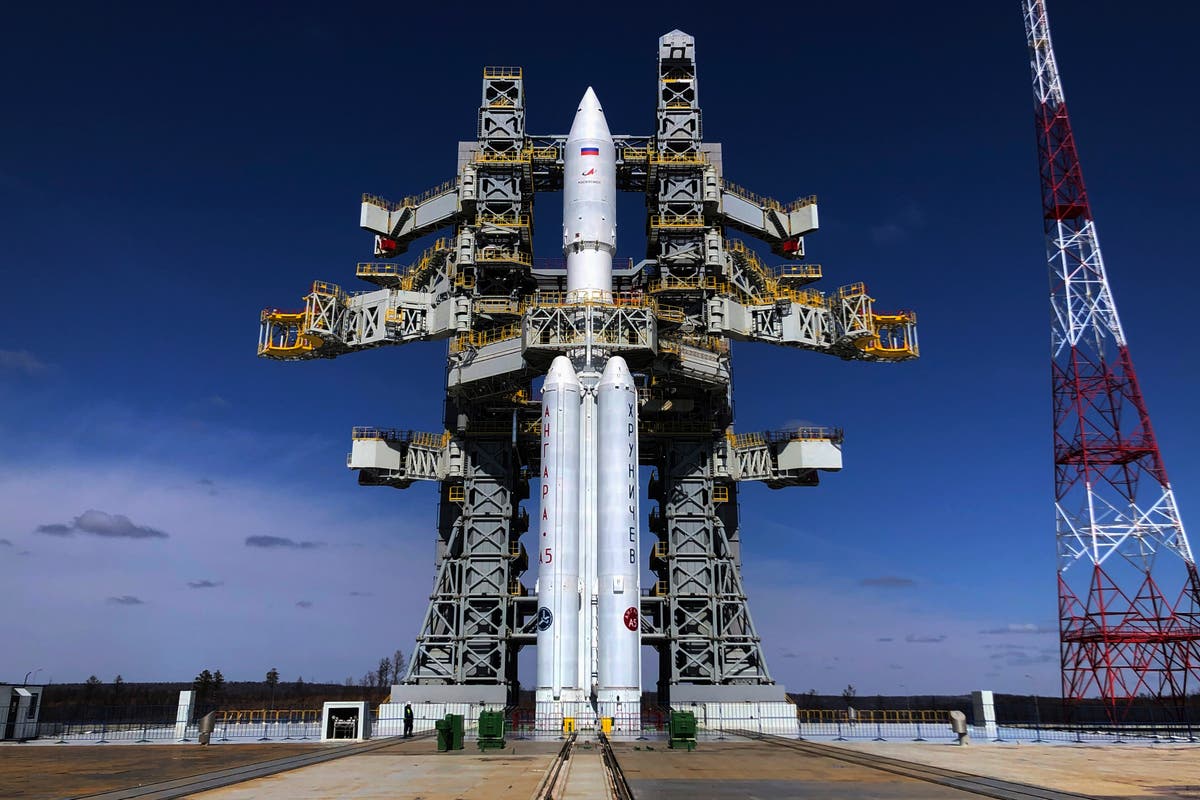Russia’s test launch of the Angara-A5 heavy-lift rocket was called off just moments before liftoff from the Vostochny space launch facility. The launch, scheduled for 0900 GMT on Tuesday, faced an unexpected halt.

Also Read: Scientists Discovered Colossal Ocean 700km Below Earth’s Crust
The Angara-A5 encountered a technical malfunction in its pressurizing system of the oxidizer tank, as revealed by Russian Space chief Yuri Borisov. This critical issue forced authorities to issue an abrupt “abort launch” command.
The scheduled test launch of Russia’s Angara-A5 rocket from the Vostochny space launch facility faced an unexpected halt, just minutes before liftoff.
This delay is the second instance of a postponed Russian space flight within a month, concerns about the nation’s space program’s reliability.
The Angara-A5, a heavy-lift rocket, was anticipated to launch from the Vostochny space launch facility, addressing Russia’s efforts to modernize its space infrastructure and replace outdated Soviet-era rockets.
Technical malfunctions in the central power unit’s oxidizer tank prompted an automatic shutdown, compelling officials to abort the mission.
Roscosmos head Yury Borisov revealed that the decision to abort the launch was made due to a malfunction in the pressurizing system of the oxidizer tank.
President Vladimir Putin has addressed the importance of the Angara-A5 project for national security.
The project has faced numerous setbacks, including delays and technical challenges, showing issues within Russia’s space program.
The Angara-A5 rocket represents an advancement for Russia, designed to succeed the aging Proton launcher and enable the delivery of payloads for the country’s planned space station and satellite navigation system, GLONASS.
The planned launch from Vostochny Cosmodrome, nestled in Russia’s Far East Amur region, marked a milestone for President Vladimir Putin’s space aspirations.
Also Read: Moon to Get its Own Time Zone by the End of 2026
Designed to replace the aging Proton rockets, Angara-A5 holds strategic for Russia’s space endeavors. Its successful deployment is crucial for various missions, including launching modules for the nation’s planned space station and satellites for the GLONASS navigation system.
Roscosmos addresses Angara-A5’s smaller ecological footprint, owing to its use of less aggressive and toxic propellants.
The Angara project emerged post-Soviet dissolution, addressing concerns of dependence on external suppliers.
Its development aims to ensure Russia’s autonomy in space exploration, safeguarding against disruptions in crucial components.
The Angara program has been marred by delays and technical setbacks, challenges within Russia’s space industry. Financial constraints, corruption scandals, and manufacturing delays have hindered progress.
The development of Vostochny Cosmodrome, envisioned as a symbol of Russia’s space prowess, has been riddled with delays and controversies.
Also Read: KSTAR: Korean Fusion Reactor Sustains Plasma at 100 Million Degrees Celsius for 48 Seconds




)

















